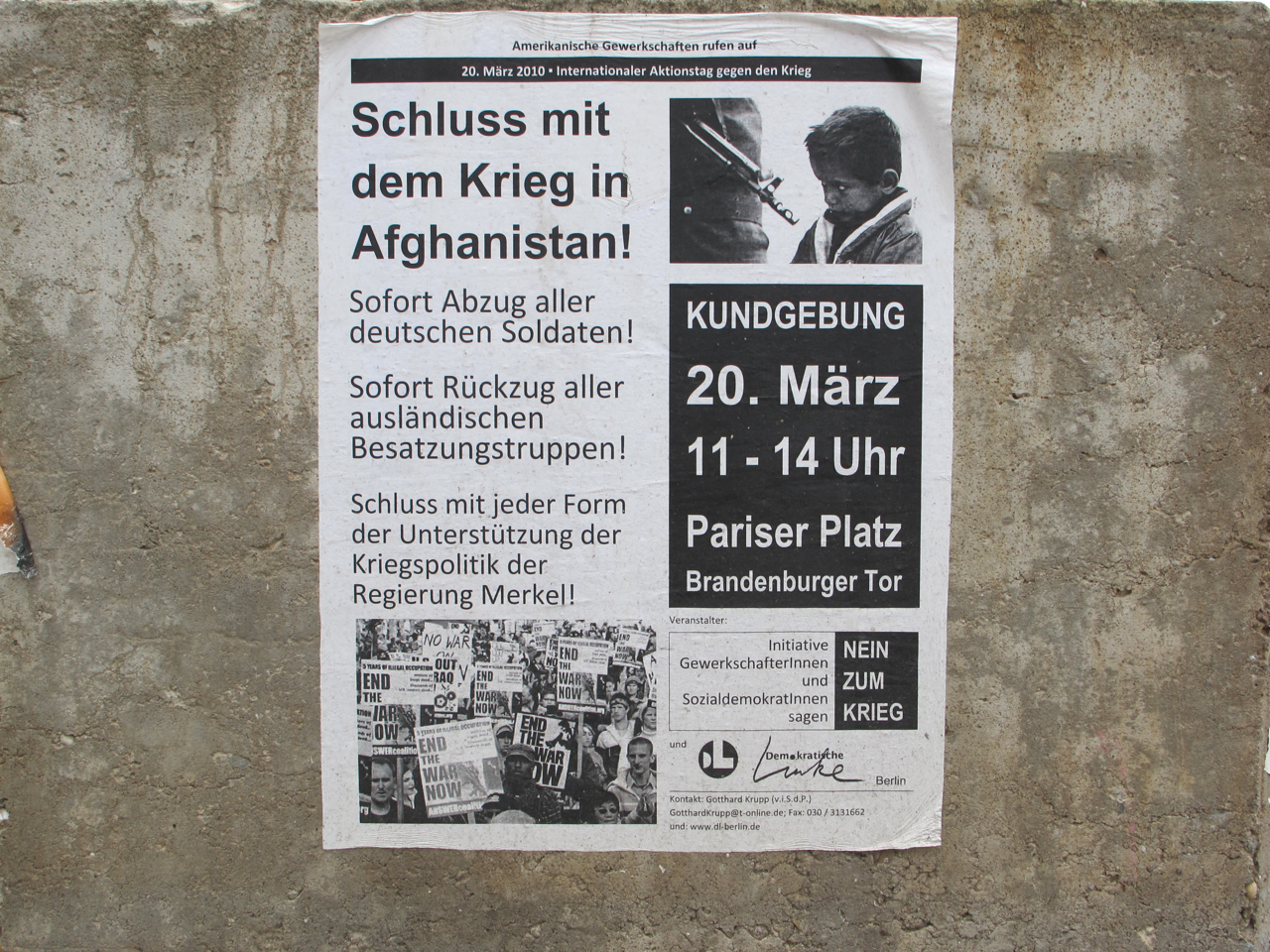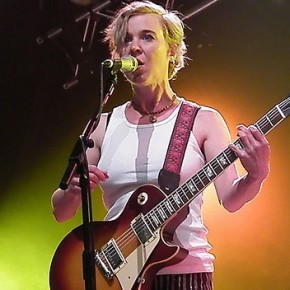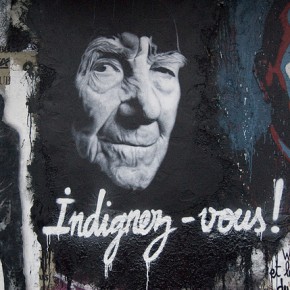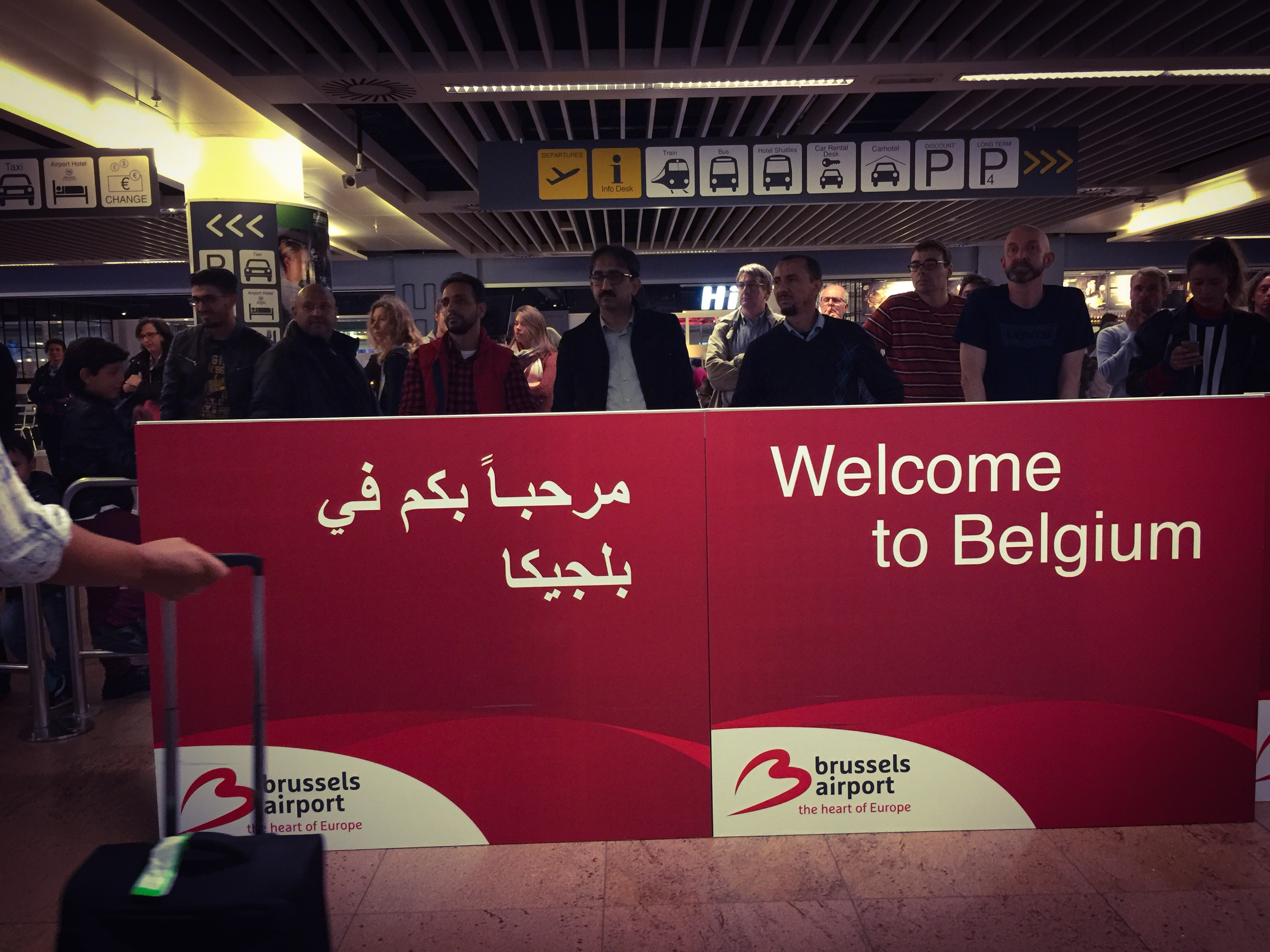The protest was shocking. Yet, for anyone who follows German politics, the bombs found on Berlin’s train tracks should not have been a surprise. For eight years, Germany has participated in the Afghan conflict. The third largest contributor to NATO forces in the country, the Bundeswehr’s participation has grown progressively unpopular. But, a fuse for leftist violence? Unanticipated.
For foreigners interested in domestic affairs, but who do not speak German, the best way to familiarize oneself with domestic opinions about the war is to read the English editions of local news outlets. The online editions of Der Spiegel, Deutsche Welle, and The Local are all excellent resources. So is the German coverage of UK periodicals such as The Guardian and The Economist.
However, nothing takes the temperature of domestic opinion better than a good long walk around a major German city like Berlin. Though well-known for its leftwing politics, the city’s preoccupation with the war is emblematic (see photo #1) of a much larger national discussion, even in more historically conservative cities, such as the street art found in Stuttgart, below.
Protest, however, is not the only way to gauge local opinion. So are local efforts to promote cross-cultural tolerance and understanding. Take, for example, the immigrant-heavy Berlin neighborhood of Neukölln. Home to a high percentage of Muslim immigrants from the Middle East and Asia, it is an especially obvious place to undertake public education initiatives about countries such as Afghanistan. See, for example, the following Afghan informational exhibit, at a shopping mall on Karl-Marx-Strasse:
It’s not as sexy as a political poster. However, it is a valid testimony to public engagement with the war all the same. Not the only display of its kind in the shopping center – there were other informational tables on Arabs and Islam, as well as Asian Muslim couture – it was refreshing break from the anti-war graffiti and posters frequently found in German cities.
Anti-Afghan war stickers. Found in Neukölln, in front of an immigrant integration center. Late October, 2010.








